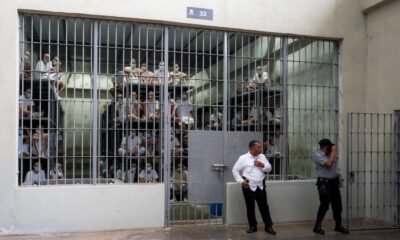cct-tracking
Trump Administration Reverses Grant Freeze Amid Confusion

In an unexpected turn, the White House Office of Management and Budget (OMB) rescinded its controversial order freezing federal grant spending just two days after its issuance. This announcement, confirmed on Wednesday, aimed to clarify confusion that had arisen across various sectors reliant on federal funding.
Originally announced on Monday, the order created uncertainty for states, schools, and nonprofits, all of which depend on federal financial support. As confusion mounted, the White House faced increasing pressure to clarify which programs would be affected. The OMB’s swift decision to revoke the order was communicated in a brief notice to agencies and departments.
Despite the retraction, the White House maintained that President Trump’s executive orders regarding federal spending targeting areas such as diversity, equity, and climate change remain intact. White House Press Secretary Karoline Leavitt emphasized that this was not a complete rescission of the intended funding freeze but rather an adjustment to alleviate confusion stemming from the court’s injunction.
Administration officials justified the initial funding halt as necessary for a review process meant to align spending with recent executive mandates. Agencies were tasked with evaluating whether their programs aligned with specific criteria set forth by the administration, including inquiries into gender ideology and abortion support.
However, inaccuracies in communication further complicated matters. Lawmakers and citizens were left reeling, uncertain about the ramifications of the order. The freeze had the potential to disrupt essential services, with concerns raised over possible layoffs and delays in public assistance.
Initially slated to take effect at 5 p.m. Tuesday, the order was temporarily blocked by a federal judge in response to a lawsuit initiated by nonprofit organizations that rely on federal grants. Democratic state attorneys general also announced plans for legal action against the freeze.
Leavitt asserted that funding reviews mandated by the President’s directives would continue unabated. Criticism from Democratic leaders highlighted the chaos and harm that ensued from the administration’s handling of the freeze. Senator Patty Murray of Washington remarked on the swift public pushback, crediting citizens for their influence in this outcome.
As clarification emerged, it was confirmed that pivotal programs like Medicare, Social Security, and food assistance would not be affected by the funding freeze. However, inconsistencies persisted regarding specific programs, leaving some uncertainty over Medicaid’s status.
Organizations dependent on federal aid, such as Meals on Wheels and Head Start, expressed concern over the potential loss of funding that could disrupt their crucial services. As the situation continues to evolve, many are left watching closely for further developments.


















